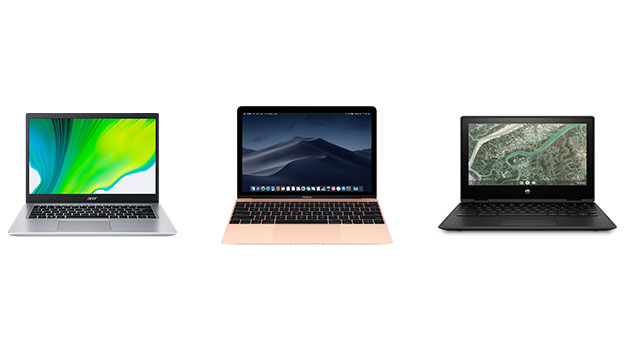- Smart Watch Payments and Digital Wallets in the Philippines - June 8, 2023
- Front-Load vs. Top-Load Washing Machines - May 25, 2023
- Pros And Cons Of Wireless Charging Power Banks - May 10, 2023
Last Updated on
There are many different types of laptops on the market, but they all have one thing in common: versatility. Laptops can be used for work or play at home depending how demanding your situation may require them to operate. They’re small enough to take with you, but still have all of your basic needs covered. There is an extensive variety in what kind to choose from so we’ve put together this guide about how best suit you and your laptop preferences.
Purpose
The more demanding users will want to invest in a higher resolution screen, powerful processor, and system memory. They might also need the larger hard drive or fast solid-state drive for faster performance than what they can get from their PC’s released within recent years. To identify your demand, you can refer to this:
Light Use – Browsing the web to paying bills, emails, and social networking!
Moderate Use – Storing music and movies, as well as doing spreadsheets or documents.
Demanding Use – Playing demanding games, multiple tabs and programs, sophisticated graphics or photo editing.
Operating System
The operating system is what enables you to use your laptop. It manages all software and hardware, including files memory cards connected devices as well letting the user interact with their computer in a visual way. There are three common operating systems that most laptops offer:
Windows – If you need Microsoft apps like MS Office, Access or Outlook and want a laptop with Windows operating system then there’s no better choice than this one. It has more options than any other OS out on the market because it is by far most popular among buyers.
MacOS – MacOS is a great operating system that works seamlessly with other Apple devices. It’s easy to use and provides an elegant user interface, all while offering impressive battery life! MacBooks start at higher price points than other laptops but they offer still very much functionality ensuring you will not regret buying one,
ChromeOS
Chrome OS may be the perfect operating system for those with tight budgets. It offers you access to all of Google’s apps, but doesn’t have as many features or application compatibility on other platforms like Windows and macOS do–so it depends what kind of computer user one wants their device/laptop being used in this case!
Processor
Intel – Intel is a household name when it comes to processors. They have been around since history was made, and their products keep getting better with each new innovation! The Intel Core i5 processor family will be perfect for general computing use while those looking more demanding environments should consider something like an Intel Core I7 or even better yet -an ultra-fast 9th Gen chip.
AMD – The AMD processor line offers a number of advantages over Intel’s comparable offerings. For example, they can be overclocked and come with better onboard graphics that makes them more appealing for gamers who want performance without having to upgrade their hardware later on down the road when new generations arrive.
RAM
The more memory you have in your laptop, the faster it will run. A minimum of 2GB is required for basic computing and 12 GB or higher should be allocated if editing graphics-heavy documents like photos/videos.
Storage
How much data do you have on your laptop? If it’s not in use, the hard drive where all of this information lives can be a great place to start. The traditional way for storing files has been with HDD or HDDs – they’re found inside computers and offer plenty enough space depending on what type needs storage!
SSDs are a great option for those who need fast boot-ups and loads. You’ll notice an increase in how quickly your computer starts up, as well as increased application response times when using programs such like Photoshop or AutoCAD which rely heavily on the operating system’s speed to run smoothly . This could be helpful if you’re doing graphic work involving 3D modeling.
Battery Life
Laptops are great for getting work done, but the battery life can be disappointing. Some manufacturers’ claims range from just a few hours up to 12+ hour marks – depending on how you’re using your laptop and what features it has installed! For example an optical drive will eat through more power than hard drives do because they need constant spinning which takes energy away from other tasks while also making sure data doesn’t get lost during transport or system crashes/hangs etc.
Size
Laptops come in many different sizes, starting at just 11.6 inches and going up to 17-inch models for those who need more space or want something that will fit easily into their bag without feeling too heavy on the shoulders!
Keyboard and Touchpad
A good keyboard will make your work more comfortable and improve the accuracy of everything you do on screen. It’s important for a computer user to have ample space between keys, as well as strong feedback from their touchpad or mouse buttons so they can get around quickly without any confusion about where exactly their fingers are.

